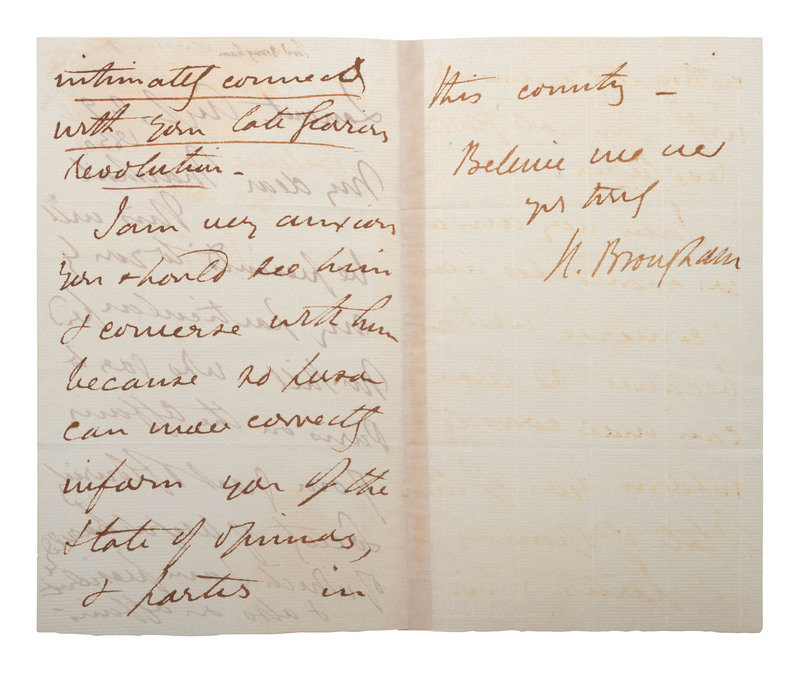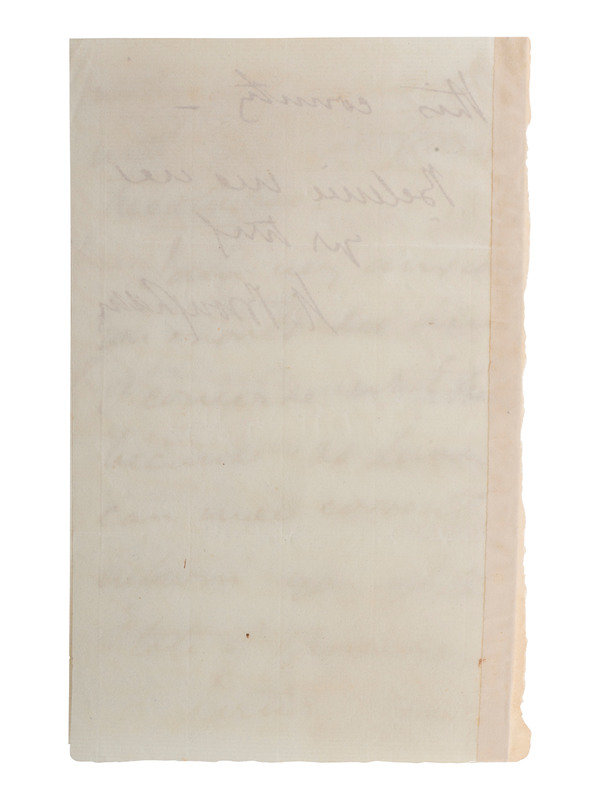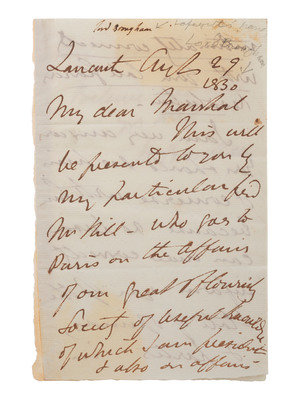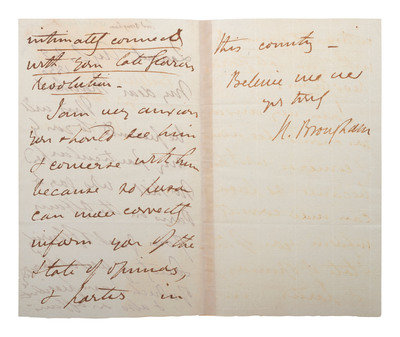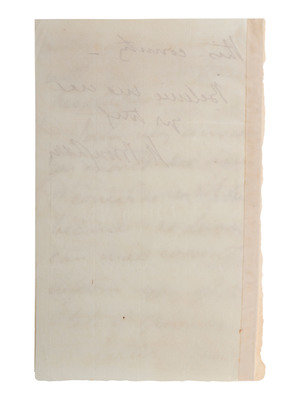Lot 18
BROUGHAM, Henry P. (1778-1868). Autograph letter signed ("H. Brougham") with identification possibly in Marquis de Lafayette's hand. Lancaster, 29 August[?] 1830.
Sale 1192 - American Historical Ephemera & Photography
Lots 1-294
Jun 15, 2023
10:00AM ET
Lots 295-567
Jun 16, 2023
10:00AM ET
Live / Cincinnati
Own a similar item?
Estimate
$300 -
400
Price Realized
$189
Sold prices are inclusive of Buyer’s Premium
Lot Description
BROUGHAM, Henry P. (1778-1868). Autograph letter signed ("H. Brougham") with identification possibly in Marquis de Lafayette's hand. Lancaster, 29 August[?] 1830.
2 1/4 pages, on bifolium, 4 3/8 x 7 3/16 in., creased at old folds, staining throughout, chipping to edges. Author identified to upper margin "lord Brougham," possibly written in Lafayette's hand, with modern pencil inscription identifying it as such.
In this letter, believed to be written to Marquis de Lafayette (1757-1834), Lord Brougham writes, in full: My dear Marshal, This will be presented to you & my particular friend Mr. Hill - who goes[?] to Paris on the affairs of our great & flourishing Society of useful knowledge of which I am president & also on affairs intimately connected with your late glorious revolution. I am very anxious you should see him & converse with him because no person can more correctly inform you of the state of minds & hartes [sic] in this country."
The "late glorious revolution" to which Lord Brougham refers here is likely the July Revolution of 1830, of which Lafayette was hailed the leader. Paris erupted in riots, and the Chamber of Deputies offered Lafayette the position of ruler, which he declined. Soon after, Lafayette retired from public life.
Henry P. Brougham, 1st Baron Brougham and Vaux, was a prominent British politician and academic, achieving the position of Lord High Chancellor of Britain (1830-1834) and being instrumental in the passing of the 1832 Reform Act and the 1833 Slavery Abolition Act. His Society for the Diffusion of Useful Knowledge was in existence from 1826-1846, purposed to provide inexpensive educational materials to common people who could not access or did not desire a formal education.
In this letter, believed to be written to Marquis de Lafayette (1757-1834), Lord Brougham writes, in full: My dear Marshal, This will be presented to you & my particular friend Mr. Hill - who goes[?] to Paris on the affairs of our great & flourishing Society of useful knowledge of which I am president & also on affairs intimately connected with your late glorious revolution. I am very anxious you should see him & converse with him because no person can more correctly inform you of the state of minds & hartes [sic] in this country."
The "late glorious revolution" to which Lord Brougham refers here is likely the July Revolution of 1830, of which Lafayette was hailed the leader. Paris erupted in riots, and the Chamber of Deputies offered Lafayette the position of ruler, which he declined. Soon after, Lafayette retired from public life.
Henry P. Brougham, 1st Baron Brougham and Vaux, was a prominent British politician and academic, achieving the position of Lord High Chancellor of Britain (1830-1834) and being instrumental in the passing of the 1832 Reform Act and the 1833 Slavery Abolition Act. His Society for the Diffusion of Useful Knowledge was in existence from 1826-1846, purposed to provide inexpensive educational materials to common people who could not access or did not desire a formal education.
Property from the James Milgram, M.D., Collection of Broadsides, Ephemeral Americana, and Historical Documents
Condition Report
Contact Information
Auction Specialist

